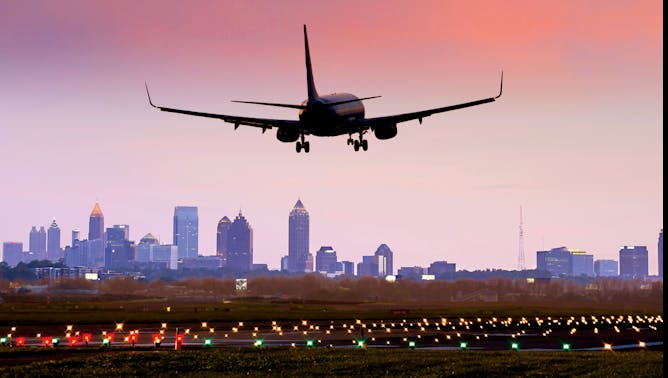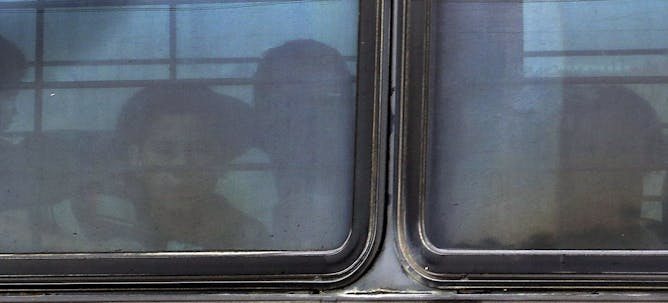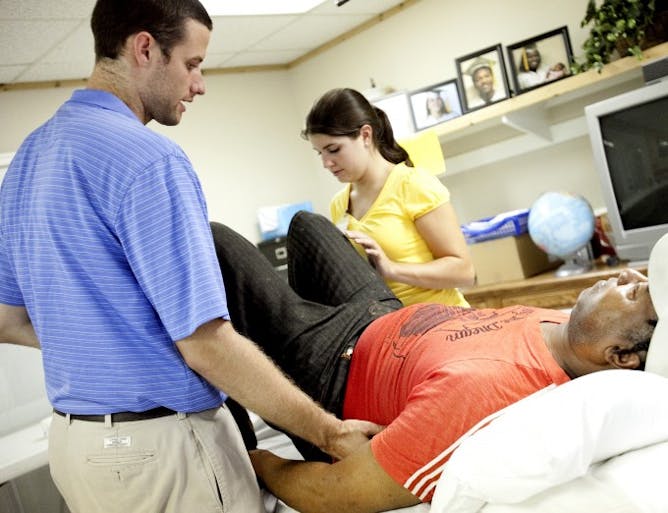|
|
|
Editor's note
|
|
Over the past decade, Georgia State English professor Randy Malamud has logged over 300,000 miles of travel. He’s been amazed by the ease with which he’s been able to bounce from one place to the next. But he’s also been discouraged by how easy it’s been to go to someplace new without ever abandoning the comforting familiarities of home. To Malamud, the forces of globalization are to blame, and it means that today’s travelers – if they really want to benefit from the experience – need a new approach.
The traumatic separation of children and parents at the border is expected to cease. But the more than 2,300 infants and children already separated may suffer permanent brain changes that predispose them to serious psychiatric diseases, explains University of Michigan psychiatrist Jacek Debiec.
And, as the opioid addiction epidemic continues unabated, health care providers and policymakers have agreed that patient pain needs to be managed differently. Could physical therapy be a solution? University of Florida scholar and physical therapist Mark Bishop assesses the benefits and the stumbling blocks.
|
Nick Lehr
Arts + Culture Editor
|

|
|
Top stories
|

As Mark Twain once said, ‘Travel is fatal to prejudice, bigotry, and narrow-mindedness.’
Jake Simonds-Malamud
Randy Malamud, Georgia State University
Globalism has made it easier than ever to visit faraway places – and easier to never really leave home while you're there.
|

A boy stares out of a heavily tinted bus window leaving a U.S. Customs and Border Protection facility, Tuesday, June 19, 2018, in McAllen, Texas.
AP Photo/Eric Gay
Jacek Debiec, University of Michigan
The traumatic separations of children and parents initiated at the border can cause permanent changes in the structure of the infants' and children's brains and the activity of their genes.
|

Physical therapists Steven Hunter and Laura Hayes teach an unidentified patient lumbar stabilization exercises at the Equal Access Clinic in Gainesville, Florida.
Maria Belen Farias, UF Health Photography
Mark Bishop, University of Florida
As the nation grapples with its opioid addiction epidemic, one solution for many with chronic joint pain and back pain could be physical therapy. But it's often underutilized. Here's why.
|
Politics + Society
|
-
Nadia Rubaii, Binghamton University, State University of New York; Max Pensky, Binghamton University, State University of New York
Trump's defense of harsh immigration tactics and dehumanizing language should ring alarm bells, according to two scholars who study how to prevent mass atrocities.
-
Mary Gallagher, University of Michigan
China want to win the World Cup by 2050. This year, its team didn't even qualify for the tournament. China has money, power and a dream – but that doesn't add up to soccer brilliance.
|
|
|
|
|
|
|
|
From our international editions
|
-
Neil McBride, De Montfort University
Far from setting us free, autonomous vehicles are set to enable new forms of surveillance and oppression.
-
Travis Wearne, UNSW; Fiona Kumfor, University of Sydney
Reporting of recent studies may have caused alarm that brain injuries cause dementia. It just increases your risk.
-
April-Louise Pennant, University of Birmingham; Nando Sigona, University of Birmingham
What is the legacy of the Empire Windrush for black Britishness today?
|
|
|
|
| |
| |
|
|
|
|
|
|
|